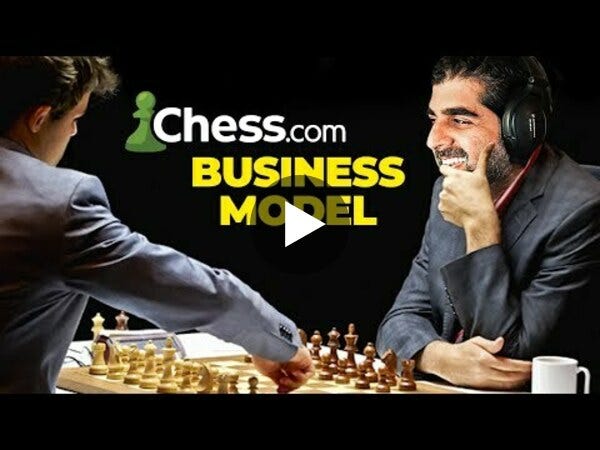The 22nd Edition - On charging more, Chess.com & the cost of keeping secrets
George Nurijanian
Hello,
Did you know that Chess.com could be a ~$100M/year business?
Such a shame that dominos.com is already taken.
1 article
Sales Philosophy. On Charging More. - Selling Something
Sales Philosophy. On Charging More.
This one is a very odd article - no poeticism or allegories. Straight up: a short checklist for any business operator.
Some excerpts below:
In a new industry, new market, new offering, the new entrant must jockey to secure the first mover advantage and preserve distance from competition.
Create the industry language and jargon.
Create the industry association. Build a wall (new entrant requirements for transparency, audited financials, certifications, etc.).
Create a unique billing and pricing methodology.
Charge the maximum the market will tolerate. This is very likely much more than you think achievable. You must have rigid client selection and pricing discipline. Marquee prospects only have power if you give it to them. Marquee clients always leave and become somebody else’s marquee clients and they will become a testimonial for your competitors.
Reinforce the social cache of the brand. Emphasize the impact that the best of breed has on how the company is perceived internally/externally.
1 video

How To Copy Chess.com’s $100M/Year Business Model
This video that gave me the Chess.com fact above.
As a New Zealander, I love the notion of a “New Zealand type” of business: independent, with a cult following, profitable, simple, no one competes with.
A few great ideas in this episode - and one of my favorite podcasts.
2 quotes
“Managing execution is essentially defining APIs but between people.” - Julie Zhuo
“Prioritization is a political problem as much as an analytical problem.” - Rich Mironov
3 thoughts
Explicit vs. Intuitive Models: There’s a difference between explicit & intuitive models. “With an explicit model, it’s relatively easy to compare model results against reality. With intuitive models, you’ll often find yourself in a conflict of belief with the model’s author.” What models in your life are intuitive vs. explicit? I’d hate to rely on an intuitive model where there should be an explicit one.
Keeping Secrets: A recent study showed that “97% of people have a secret they are keeping & the average person has 13! The more secrets, the unhappier people are - not from the stress of concealing the secret, but because our mind dwells on the secret.” Those skeletons in the closet come at the expense of happiness.
Signal Lost Through Compression: “Products can have a fair amount of nuance in their value proposition. When you attempt to compress it all into a single value statement, you lose a lot of that nuance in the process.” Don’t aggregate away the signal (assuming the signal is there).
Thanks for reading.
Have a great week ahead & see you next week.
In order to unsubscribe, click here.
If you were forwarded this newsletter and you like it, you can subscribe here.
Created with Revue by Twitter.


